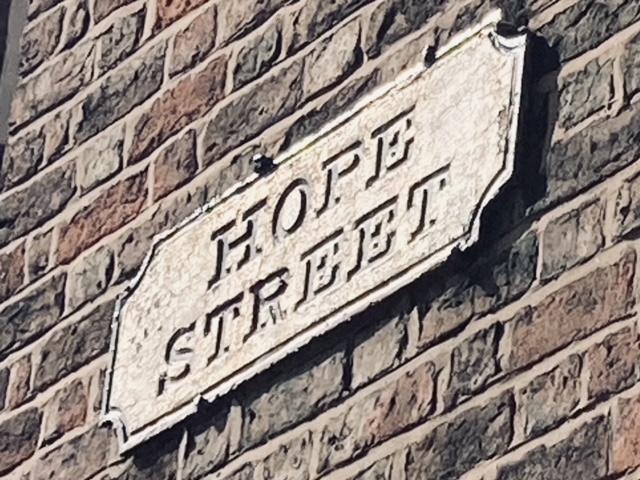The Queen is dead. Long live the King
A post-Elizabethan era begins, and with it an existential shift unlike anything experienced, certainly since World War Two, maybe in our history. When the pandemic hit, Her Majesty said that ‘we will meet again’ and so it was, but in so doing we note the depths of uncertainty surrounding us.
Something has changed; deep, intangible, fundamental. Life is more fragile than it was. The cost-of-living crisis bites, catalysed by Brexit. The Climate Crisis continues, exemplified by catastrophic floods in Pakistan and temperatures in the UK over 40degrees for the first time. The war in Ukraine rages, displacing millions and rupturing the geopolitical terrain. These concerns are shaping our lives in different ways at personal, communal, societal, and global levels.
With Her Majesty’s passing, tributes centred on her leadership, noting the depth of commitment she offered:
“I declare before you all that my whole life, whether it be long or short, shall be devoted to your service and the service of our great imperial family to which we all belong.”
(Speech on her 21st birthday, April 21, 1947, broadcast on the radio from Cape Town)
In hearing this and in seeing the global response to this profound loss, I was challenged to ask, how might we all embody leadership for uncertain times?
In my paper to the British and Irish Association of Practical Theology, conference on 13th July 2022, I explored this question, which has now been given fresh significance and momentum, by looking through the lens of Curating Spaces of Hope. Curating Spaces of Hope emerged from lived experience of contexts of uncertainty from 2010-2020, a decade bookended by the global financial crash and the global pandemic. It was rooted in experiences of unemployment, poor mental health, social isolation, coercive and controlling behaviour, blackmail, abuse and discrimination. As time moved on, it was shaped by a social movement, public dialogues, and ethnographic research into organisational approaches, physically engaging circa 1000 people in urban spaces in north west England.
In terms of what emerged, the Inquiry into the Future of Civil Society in England described Curating Spaces of Hope as:
“bringing together innovative mixes of civil society actors – from professional community practitioners through to individual community activists – to ‘meaning-make’ as a response to experiences of pointlessness and emptiness in personal, community and professional life.”
Through doctoral research at Goldsmiths University of London, Curating Spaces of Hope has been defined as a new paradigm and consultative methodology for faith-based organisation (Barber-Rowell, 2021). What is generally meant by Curating Spaces of Hope is, a means of mapping and mobilising responses to lived experiences of uncertainty, which are more than the sum of their parts.
This process begins with each of us. Curating Spaces of Hope is the task of leaders, committed to their context and drawing on all that they have, to offer to others what they can, to make the world a better place. Five principles have emerged from the Curating Spaces of Hope journey to date and are here for you to consider:
- Freedom: the potential we have within us and the ability we have to make that real and tangible. Put another way, taking responsibility, and sharing the fullest possible expression of our personality.
- Relationship: We are in relationship with everyone and everything, from the people we love to the places we live, to the rest of the world as we see it. Relationships help us to understand the freedom that we have positively, in terms of freedom for others, as opposed to freedom from others.
- Service: expressing freedom, in relationship with others is service; the incarnation of our potential as expressions of leadership in the multitude of different ways that this manifests itself.
- Affect: Expressions of service can come in a wide variety of forms, each can be both subtle and significant and are simultaneously synonymous with hope. The principle of affect is a guide to be aware of and sensitive to everything around us. As the pandemic has taught us, the smallest of sources can bring hope.
- Authenticity: Finally, we should consider if the freedom we are sharing through relationship with others and expressing through service that is affective and affected by what is around us, fits within our wider story. This is not an inward sense of authenticity that we decide upon for ourselves, but rather an outward question for others to answer about whether what we are doing is truly hopeful and hope filled.
With the death of Her Majesty, we have lost a giant in history, who has exhibited for us what it means to embody leadership in uncertain times. As this era of uncertainty continues, it is over to all of us to respond. My invitation that I wish to extend will be to explore these principles for yourself and consider what embodying leadership means for you.
Dr Matthew Barber-Rowell is a Fellow of the Royal Society of Arts, a Master of Environmental Politics, Founder and Director of Spaces of Hope, and a former William Temple Scholar. Matthew has spent the last ten years working in urban contexts in the northwest of England, engaging with issues of loneliness, isolation and social connection, and applying grounded and assemblage theories to produce interventions that combat health inequalities. Matthew specialises in gathering stories, surfacing motivations, beliefs, values and worldviews and contextualising their role in shaping spaces, places and the wider environment.
More blogs on religion and public life
- “Barnabas Thrive” led by Revd Dr Paul Monk, is awarded Kings Award for Voluntary Service
by Matthew Barber-Rowell - How could a Temple Tract have had even more traction?
by Simon Lee - Remembrance Day: Just Decision Making II
by Matthew Barber-Rowell - Trustees Week 4th Nov – 8th Nov 2024
by Matthew Barber-Rowell - Some ancient wisdom for modern day elections
by Ian Mayer

Discuss this